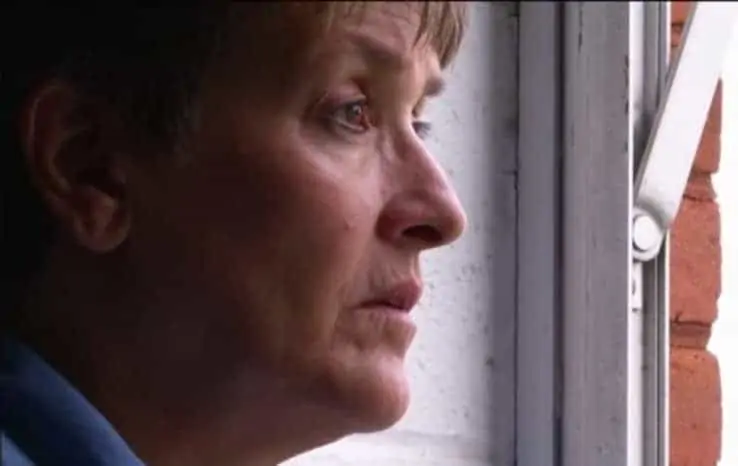By Justin George The Baltimore Sun 6:00 a.m. EDT, October 8, 2014.
Joy remembers the day that risking a few dollars for fun turned into a rush she couldn’t control. It was Feb. 14, 2000, at the casino in Charles Town, W.Va. She plunked some money into a slot machine, and out came hundreds of dollars — and the start of an addiction she could never satisfy. “I went out with $30 and went home with $400 and that’s all she wrote,” she said.
Like an alcoholic who needs more drinks to get drunk, she needed to wager ever larger sums to recapture the thrill. She once won $20,000 on a slot machine, she said, but couldn’t leave until she had gambled it all away — three days later.
Joy, a 56-year-old mother who once held a good job as a bookkeeper for a small business in Western Maryland, shared her story with fellow inmates at the Maryland Correctional Institute for Women.
She pleaded guilty in 2012 to stealing more than $100,000 from her employer — money she said she needed to feed her habit. It was her second conviction for theft; she was sentenced to eight years.
Now she’s leading the first chapter of Gamblers Anonymous to meet in a Maryland state prison. Nearly 40 inmates attended a recent “open house,” held in the library of the facility for 800 women in Jessup.
Studies indicate that the rate of problem gambling is higher among prison inmates than among the population at large. Many inmates say problem gambling led to their incarceration.
The idea of dealing with their addiction behind bars dates back more than half a century ago, when inmates started a group at the California Institute for Men in Chino. Now there are enough groups across the country to merit their own Gamblers Anonymous publication: “Toward Recovery in Prison.”
The prison in Jessup lies just a few miles from the Maryland Live casino at Arundel Mills mall. Most of the inmates come from Baltimore, where the 122,000-square-foot Horseshoe Casino opened in August. Most are expected to return to the city when they are released.
Some see the new casinos as minting millionaires. Joy — The Baltimore Sun agreed not to publish last names, as a condition of attending the meeting and interviewing participants — sees them as producing more inmates.
“I know a lot of people in Baltimore drove an hour and a half to gamble,” she said. “Now they can walk.”
The women at Jessup started meeting in April. Margaret Chippendale, warden of the Maryland Correctional Institute for Women, has embraced the group.
“What better time?” she asked.
A spokeswoman for Caesars Entertainment, which owns the Horseshoe, said the company has put up posters in the casino with information about the odds of winning and the number of a hot line offering help for patrons with a gambling problem. She said casino workers are trained to spot signs of problem gambling and intervene with phone numbers and treatment options.
“We’re big believers in treatment or avenues for treatment,” Jan Jones Blackhurst said.
The state runs a program that allows people to ban themselves from casinos. So far, 582 people have registered for the voluntary exclusion program, subjecting themselves to criminal penalties if they are caught in a casino. Since 2011, the state has issued 63 violations, mostly for trespassing. However, Stephen Martino, director of the Maryland State Lottery and Gaming Control Agency, said last month that his agency might remove the lifetime self-ban option because of concerns that it is excessive and redundant.
Those who track problem gambling say programs such as Gamblers Anonymous are more effective than restrictions and enforcement.
“It’s certainly something we think there needs to be more of,” said Keith S. Whyte, executive director of the National Council on Problem Gambling.
Temptation also lurks inside the prison, where inmates bet candy, shower gel, potato chips and other commissary items in illegal sports pools and other games. Researchers for the U.S. Department of Justice have found that inmates are three to five times more likely to develop a gambling problem.





